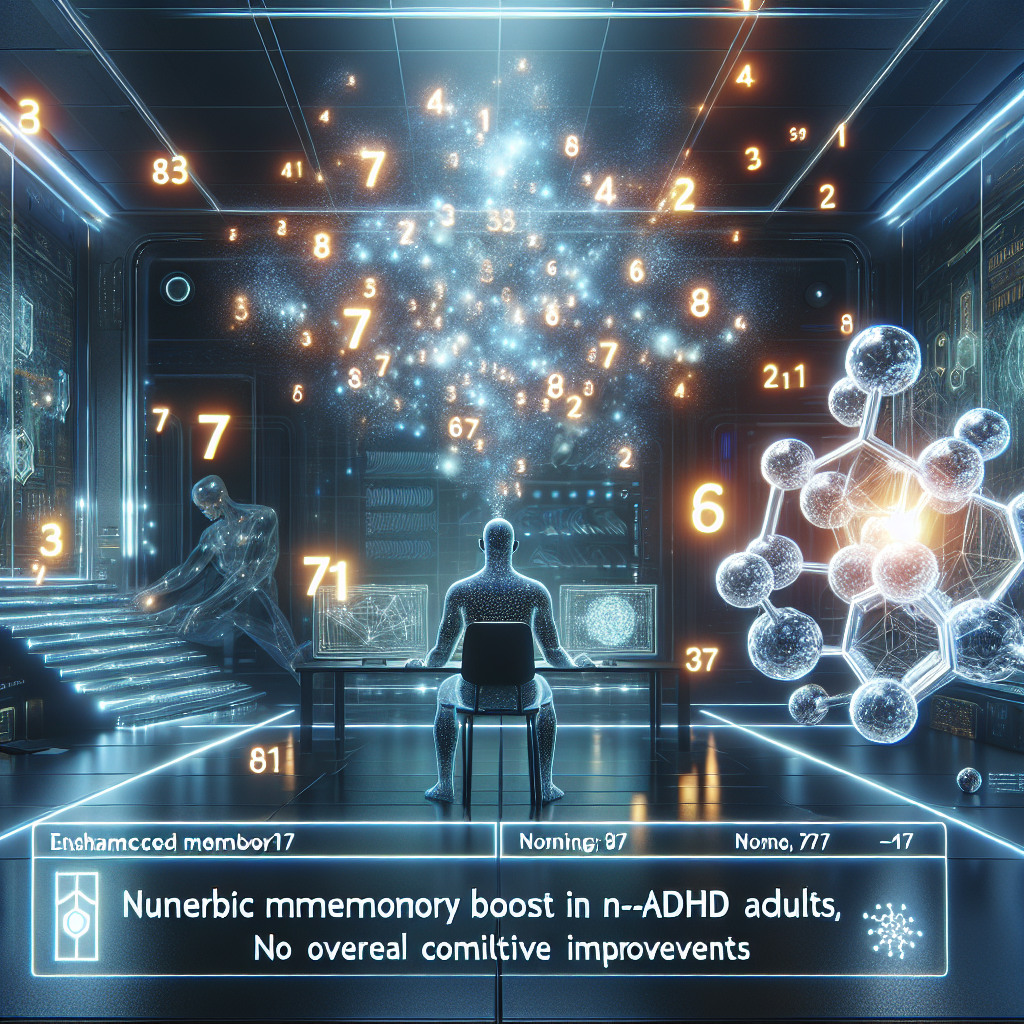“Ritalin Boosts Numeric Memory for Non-ADHD Adults”
Low-dose methylphenidate improves numeric memory accuracy in healthy adults, but doesn’t boost overall cognitive function.
“
Study Finds Low Dose of Common ADHD Medication Improves Accuracy in Memory Tasks
A recent study published in Human Psychopharmacology: Clinical and Experimental highlights the impact of a low dose of methylphenidate, a commonly prescribed ADHD medication, on the cognitive performance of healthy adults. While this stimulant medication, known as Ritalin among other brand names, is typically used to manage ADHD symptoms by boosting levels of dopamine and noradrenaline, its potential benefits for non-ADHD individuals—especially students looking to improve focus and academic outcomes—have increasingly come under scrutiny.
Key Findings
- Methylphenidate may enhance accuracy in certain memory tasks
- No significant improvement observed in overall cognitive function
Previous research on the cognitive effects of stimulant medications has shown promise in areas like working memory and processing speed, but these studies often focused on higher doses or clinical populations. The current study sought to fill this gap by investigating the impact of a lower dose (10 mg) of methylphenidate on cognitive performance while minimizing potential side effects.
Research Methodology
Led by Amie C. Hayley from Swinburne University of Technology, the study involved a randomized, placebo-controlled crossover design with 25 healthy adults (36% female, aged 21 to 45). Each participant received either the 10 mg dose of methylphenidate or a placebo in two separate sessions spaced a week apart. Cognitive tasks evaluating reaction time, working memory, and visual attention were administered, complemented by eye-tracking technology to analyze changes in visual scanning behavior.
Mixed Results
While participants demonstrated improved accuracy on a numeric working memory task after taking methylphenidate, their performance in other cognitive domains such as reaction time, general working memory, and visual scanning efficiency remained unchanged. The researchers concluded that the effects of low-dose methylphenidate seem to be dose-limited and task-specific, aligning with existing literature highlighting modest enhancements in select cognitive tasks.
Study Limitations and Implications
Despite its contributions, the study’s small sample size and homogeneity among participants (predominantly young, well-educated adults) raise concerns about the generalizability of the findings. Recognizing the potential limitations, the researchers underscore the need for further research to unravel the nuances of stimulant medication effects on cognitive abilities in non-ADHD populations.
This latest research sheds light on the nuanced impact of low-dose methylphenidate on cognitive function in healthy adults, underscoring the need for a cautious approach when considering the use of stimulant medications for cognitive enhancement purposes. As the debate around the efficacy and appropriateness of such "smart drugs" continues, future studies will play a pivotal role in expanding our understanding of the intricate relationship between medication, cognition, and overall well-being.
Published on: 2025-03-30 14:00:00 | Author: Bianca Setionago
🔗 You may also like: More posts in Cognitive Science,Psychopharmacology










